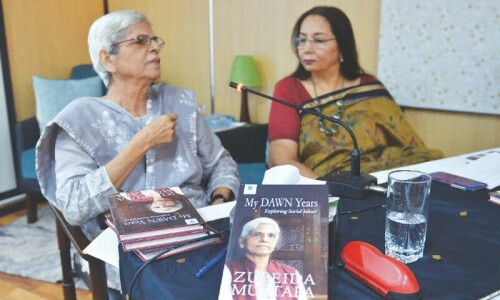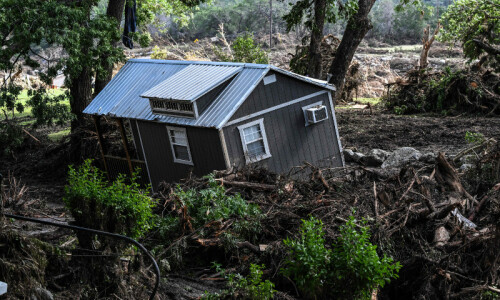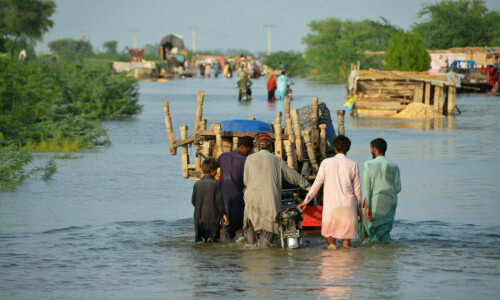BALOCHISTAN’S Rs1.028tr budget, featuring a public development investment of Rs245bn and provincial surplus of Rs36.5bn, ostensibly aims to address the massive socioeconomic infrastructure gaps in this most neglected, strife-ridden province. But the challenges facing the country’s largest province — despite its having the smallest population — are too big for a few hundred billion rupees to tackle successfully. Rich in natural resources, and with a 750km coastline, the province is strategically located and has the potential to become a regional and global trading hub. Yet it is Pakistan’s least developed province with around six out of 10 persons living below the poverty line. Not only is it affected by a growing separatist insurgency and sectarian militancy, it also bears the brunt of poor governance and endless corruption. In his budget speech on Monday, Balochistan’s Finance Minister Mir Shoaib Nosherwani claimed to have ‘fully utilised’ development funds of Rs219bn during the outgoing year. Given the average development budget utilisation of around 55pc, we can only speculate how much of it might have been misappropriated.
The province is not grappling with the usual development challenges that the other federating units face; both the establishment and government look at Balochistan’s problems and population through a security lens. Does the budget have anything in it that can change that view? Unfortunately, it does not. The growing trust gap between the rulers and the ruled is a major reason why past efforts for the province’s uplift, such as the Aghaz-i-Haqooq-i-Balochistan package, the 18th Amendment, and an enhanced share from the federal tax resource arrangement, have yielded few results. Bad governance, inefficient service delivery and rampant corruption have curbed its progress, resulting in a massive throw-forward of schemes, disaffection against the state and higher security costs. The province’s economy continues to revolve around low-value-added services despite its mineral wealth, while its agriculture sector has been blighted by climatic catastrophes. Private parties are afraid of investing their money in industrial development as the Gwadar Port, the flagship of the CPEC project that was billed to change destinies, remains inoperative. No amount of money, no matter how judiciously and effectively it is invested, can address these issues unless Balochistan’s political economy challenges are tackled first — and not just through kinetic actions.
Published in Dawn, June 18th, 2025









































